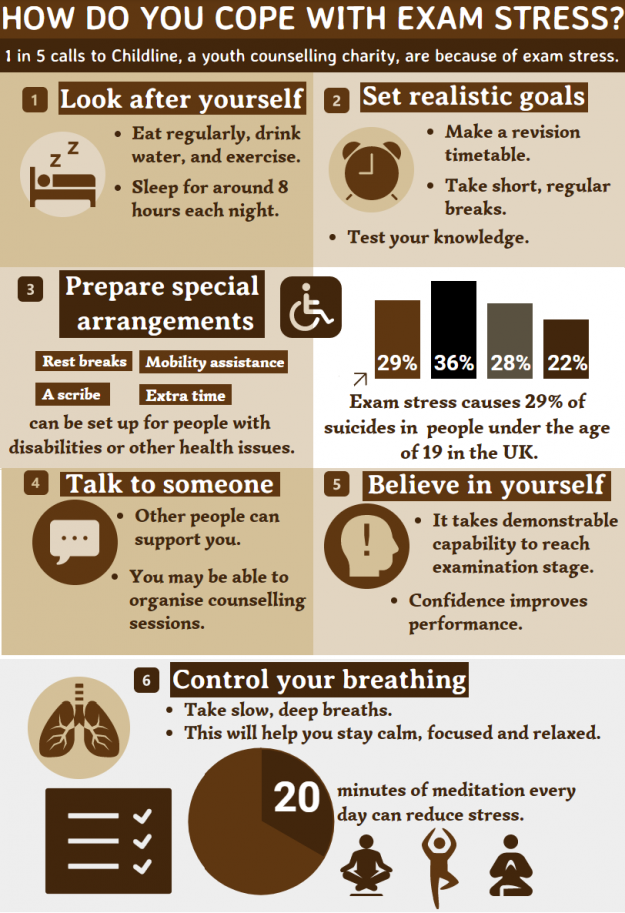Exams are important, challenging and can determine your life choices. How can you deal with the pressure to succeed?
It’s pretty difficult to advance through life without sitting a single examination. Whether it’s a job requiring an aptitude test, or advancement within a study program at an educational institution, exams are an inevitability of life.
An exam or test is a situation in which a person is assessed on aspects such as their knowledge, skill, or suitability for a particular job or establishment.

The first record of an exam comes from Ancient China, where people were required to take a test to be selected for a job working for the government. These assessments have since become applicable to several domains, one of which is education.
Oral tests where participants answered questions in a dialogue were commonplace in medieval Europe, until the 1850s when students started answering questions in a written format.
Despite the longstanding tradition of drilling information into people’s minds and then torturing them to find out what details they retained, one thing remains the same. Exams can be a source of stress. In some cases, the person being assessed may feel pressure to achieve a certain grade.

Failing to reach the expected goal may lead to undesirable consequences. An example of this would be that in the United Kingdom, universities stipulate conditions that a candidate must satisfy before gaining admission to that institution. In the vast majority of cases, universities require the applicant to achieve a certain grade in preliminary exams.
If the candidate does not meet the criteria by the specified deadline, their place at the establishment may become jeopardised.
Issues can arise if a person who is continuously sitting examinations becomes overwhelmed with stress. Childline is a 24-hour phone counselling service for children and young people. A recent Childline report states that children between the ages of 12 and 15 are most likely to require counselling for exam stress.
There has also been an increase in the number of 16-18 year olds looking for support with exams. Many of these children will be preparing themselves for university and higher study.

People may feel hopeless or unintelligent if they fail an exam. It is not uncommon for individuals to develop depression or anxiety. A frequent complaint about exams is that they test a limited amount of knowledge over a short period of time in a pressurised environment. They are also not always a true representation of a person’s proficiency in the subject.
Findings from a study conducted by the Office of National Statistics showed an increase in suicide rates for young people in Britain. According to this research, 29% of young people between the ages of 10 and 19 ended their lives while they were waiting for exam results or sitting the exams.
Appropriate stress management is a component of a healthy life. Stress is a biological response to pressure and can motivate the human body to initiate processes that enhance concentration, improves motivation and boost brain function. Carefully controlled stress is a biological advantage.

Uncontrolled stress can develop into a chronic medical condition where symptoms range from mild to severe. It may begin with headaches, dizziness and sleeping problems. These issues alone can stifle progress in performing regular activities and worsen or bring about mental illnesses such as depression.
More worryingly, increased stress levels have been linked to serious health problems such as heart disease, hypertension, and eating disorders. It has also been linked with a reduction in the functionality of the immune system, which is a major issue because this will compromise the body’s ability to fight off infections.
Ultimately, if you cannot learn how to manage stressful conditions, things can snowball pretty into life-threatening or dangerous situations, reducing the overall quality of life.
There are several methods that can be used to handle stress and increase your chances of doing well in your exams.

It is important to remember exam results are not determinants of a person’s value or intelligence. Nor are they necessarily an accurate representation of the individual’s ability in the area of assessment.
Sources:
How can you tell the difference between good stress and bad stress?
Exam stress overwhelming for thousands of children
